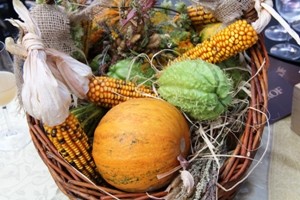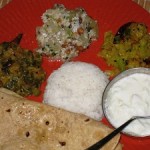Fresh Food vs Frozen Food
Fresh Food vs Frozen Food – Fresh vegetables aren’t always better or healthier than frozen vegetables. Watch this video to compare fresh vs frozen vegetables and fruits.
Expert: Amy Hendel, R-PA, Health Coach Health Coach, Author of “The 4 Habits of Healthy Families”
Transcript
If it’s fresh, it must be best, right? If you’re talking fruits and veggies, the answer may surprise you!
When cruising the grocery store aisles, we often pick up our fruits and vegetables in the fresh produce section. After all, it makes sense to assume that food in its natural form is the healthiest option. But surprisingly, those of us who make regular trips to the frozen aisle may be getting more bang for our produce buck!
According to research from the UK’s Sheffield Hallam University, frozen foods are not only as nutritious as their fresh counterparts, they may be even more so. The reason is that fruits and veggies chosen for freezing are picked and processed at the height of freshness. The standard flash-freeze process locks produce in its most nutrient-rich state.
On the other hand, fruits and vegetables destined for grocery stores are usually picked before they are fully ripe, which often times doesn’t allow them to develop the maximum amount of vitamins and minerals. Plus, fresh fruits and vegetables may spend up to a month in transit from farms to wholesalers to retailers. During that time, they are exposed to light and heat, both of which can reduce levels of delicate vitamins, like C and B.
Even juice isn’t immune! Researchers at Arizona State University recently found that frozen orange juice contains more vitamin C and is more nutritious than the OJ you buy in the refrigerator aisle. They also found that ready-to-drink orange juice loses all of its vitamin c within four weeks of opening the package, which is not true of the frozen variety.
But while frozen produce and juice are healthy choices, fresh produce certainly still has a place in your refrigerator! That’s especially true for locally grown options that don’t have the long journey to get to your table. In-season fruits and vegetables are a smart buy, too, since they’re sold at the peak of their nutritious cycle and are often offered a cheaper price.
Whichever produce you pick, though, one thing is for sure: fruits and veggies do your body good, so aim to get the five to ten servings you need daily in any way you can!
Last Modified: 2013-04-18
Category: Health and Nutrition, Videos







